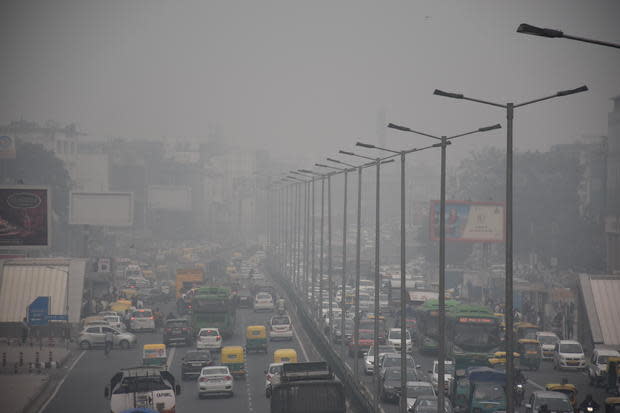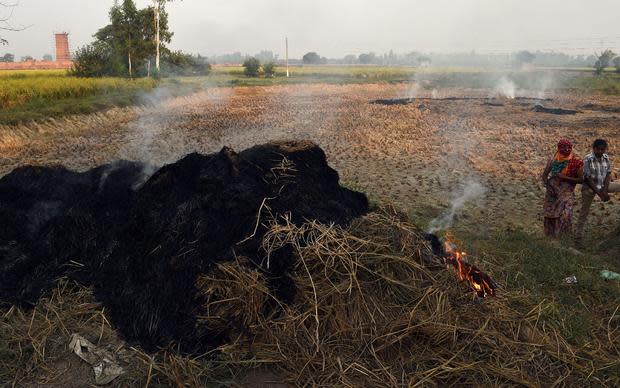Air pollution forces India to close schools for 2nd time in 2 weeks
Delhi — The air pollution in India's capital got so bad again this week that the government was forced to close schools. It was the second time in two weeks. The air has been choked with a concentration of noxious pollutants about 10-times higher than what's considered safe by the World Health Organization.
The smog is so thick and the levels of toxins so high that it's a health threat not just for children, the elderly and those with underlying health problems, but for every single person exposed to the deadly air. India's pollution control authority ordered all schools in Delhi and its suburbs shuttered on both Thursday and Friday. All industries running on coal and other fossil fuels were also asked to stay closed.
The timing this week was poignant. Children in the capital were stuck at home on November 14, celebrated every year in India as "Children's Day."
Some students wrote open letters to Prime Minister Narendra Modi that were picked up by Indian media.
"I used to enjoy soccer earlier but now I can only enjoy it on TV," student Ishan Mahant said in his letter to the country's leader. "I cannot play outside because the air is too toxic to breathe."
The government was to decide on Monday whether to extend the .
Another study published this summer said India's poisonous air was responsible for the deaths of more than 100,000 children under five every year. The State of India's Environment (SoE) Report found air pollution was responsible for 12.5 percent of all deaths in the country.
"Greater sense of urgency"
Air pollution in Delhi spikes every winter due to several factors, including lower wind speeds, festival fireworks and crop residue burning by farmers in Delhi's neighboring states.

Smog blankets India's capital Delhi, November 14, 2019. CBS/Arshad R. Zargar
Despite the Supreme Court banning the farm fires, they continue to burn. Last week, farmers in Haryana state told CBS News that it was easier and much cheaper for them to set the remnants of their last crop on fire rather till it back into the soil.
Earlier this month, environmental journalist Bahar Dutt told CBS News that the government only seems to show concern about the toxic air during the winter, when the pollution spikes.
"A greater sense of urgency from the government is missing," she said.
The Supreme Court demanded the governments in Haryana and other states bordering Delhi do more to support their farmers to deter crop burning.

This photo taken on October 16, 2017 shows paddy crop stubble smoldering in a field in Sonipat in the northern Indian state of Haryana. AFP
The court said there should be cash handouts for small farms to help them deal with their waste products in a cleaner way. It also said the state governments should make the expensive machinery used to prepare fields available for rent.
Day 2, Part 2: Devin Nunes criticizes Democrats' handling of impeachment inquiry
Day 2, Part 1: Adam Schiff describes Marie Yovanovitch's abrupt ouster
